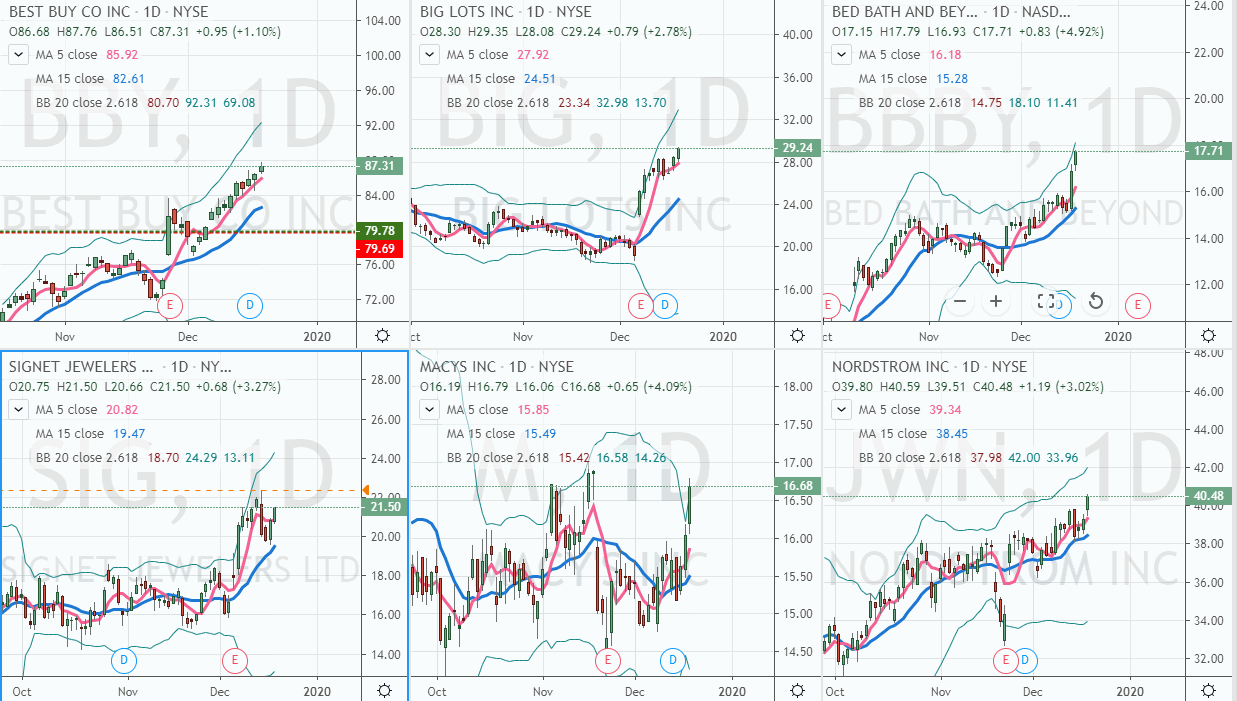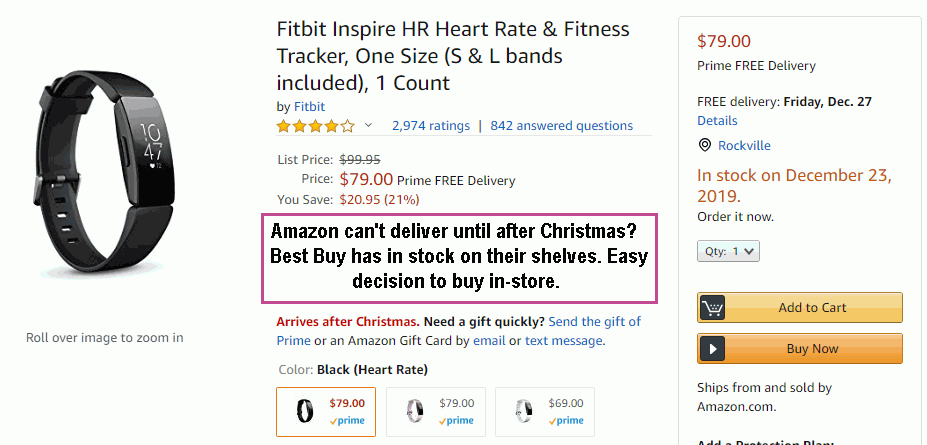The brick and mortar retailers have been in stealth rally mode heading into Christmas for a key reason. The closer we get to Christmas, the stronger the brick and mortar stores will perform. Why? No one wants to risk deliveries coming after Christmas. Amazon.com
NASDAQ: AMZN and FedEx
NYSE: FDX gave key clues this week. AMZN restricted third-party sellers from using FedEx ground citing quality issues. This surprise move highlighted delivery fulfillment issues alarming online shoppers to look to physical stores to get their gifts. The winners are brick and mortar stores with an online presence enabling ordering online with pick-up in-store options as indicated but the strength in stocks like Macys
NYSE: M, Nordstrom’s
NYSE: JWN,
Best Buy NYSE: BBY and even Bed, Bath and Beyond
NASDAQ: BBBY.

FedEx Fumbles the Ball
FedEx Q2 2019 earnings release missed top and bottom-line estimates coupled with lowered guidance further placed doubts on the delivery component. FedEx shares collapsed over 10-percent and even dragged peer UPS NYSE: UPS down over one-percent on Dec. 18, 2019. The core mechanism that makes online commerce operate efficiently is the delivery component. This is what makes online shopping quick, efficient and convenient. Any delays or uncertainties surrounding timely fulfillment can quickly trigger a stampede of shoppers to the retail shops.

Amazon’s Loss is Retail Shop’s Gain
Personally, I found this out when trying to order a Fitbit watch for my daughter on Amazon this week. Delivery expected after Christmas. Huh? This surprised me prompting me to search for local retailers who apparently have tons of these watches available. I drove to Best Buy to purchase the watch that day, rather than risk late delivery. I’m not the only one experiencing this and chances are the brick and mortar retailers will see continued traffic spikes heading into Christmas as surprised consumers realize they run the risk of delivery delays with Amazon or any other online retailer. This leads me to believe retailers will surprise analysts with Q4 2019 top-line numbers. They can thank Amazon and FedEx for casting doubts with consumers so close to the holidays.
Retailers Can Continue to Melt-Up into 2020
Notably, Macy's was the worst-performing stock in the S&P 500 in 2019 until the 10-percent rise this week. Fund managers can still justify buying “value” in this name. The beaten-down retailers have many catalysts contributing to an almost perfect storm type melt-up that should continue into 2020. The China phase one trade deal should help improve margins. The shrinking short interest further compels short-covering. The underperformance of portfolio managers needing alpha into year-end can still get “cheap” value piling into these beaten-up stocks. The seasonally thin liquidity market further fuels the melt-up in this sector. Expect analysts to leapfrog each other to raise estimates based on “channel checks”. This doesn’t mean the retailers are out of the woods, however, this is a perfect storm for shares to melt-up in a vacuum under an unexpected narrative. Amazon took a shot at FedEx, but it inadvertently shot itself in the foot. After all, there’s nothing more “inconvenient” than the look of disappointment on your kid’s faces Christmas morning when they find out Santa will be “late” this year.
Before you make your next trade, you'll want to hear this.
MarketBeat keeps track of Wall Street's top-rated and best performing research analysts and the stocks they recommend to their clients on a daily basis.
Our team has identified the five stocks that top analysts are quietly whispering to their clients to buy now before the broader market catches on... and none of the big name stocks were on the list.
They believe these five stocks are the five best companies for investors to buy now...
See The Five Stocks Here
Enter your email address and we'll send you MarketBeat's list of ten stocks that are set to soar in Spring 2025, despite the threat of tariffs and other economic uncertainty. These ten stocks are incredibly resilient and are likely to thrive in any economic environment.
Get This Free Report
Like this article? Share it with a colleague.
Link copied to clipboard.